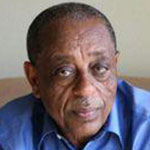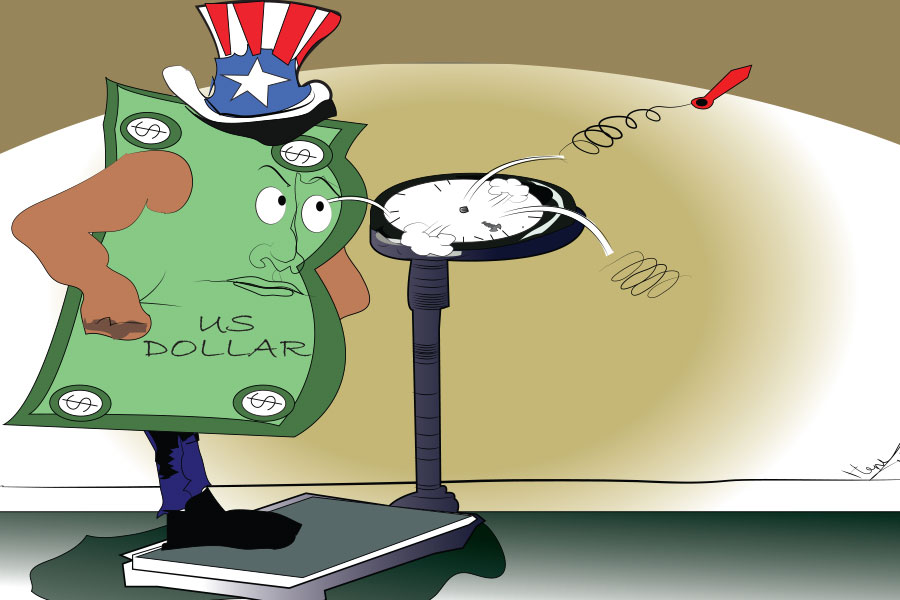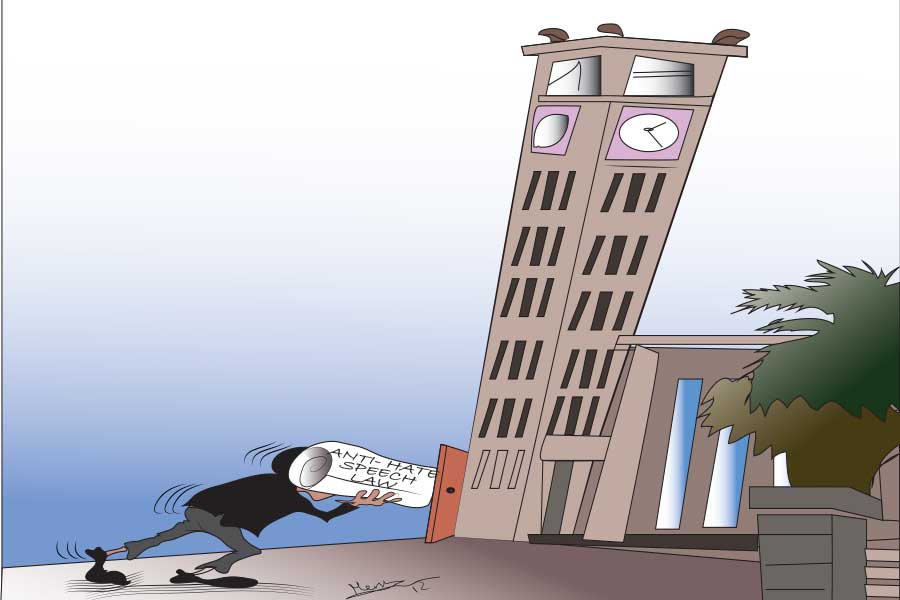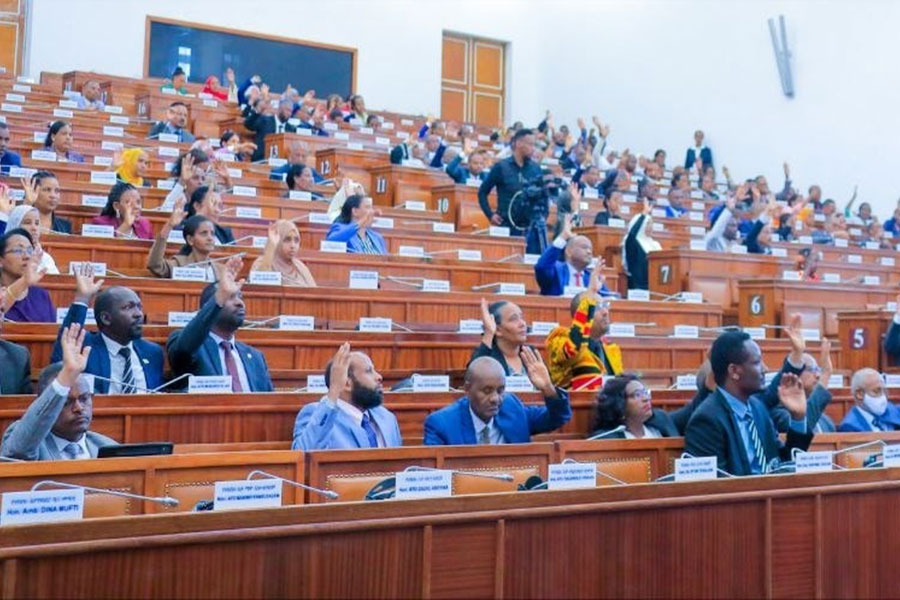
In the foothills of Gulele, the ancient forested mountain that towers over the northern parts of Addis Abeba, a new settlement has sprouted that is aptly named Addis Gebeya, or new market. It is a cavernous community of tangled homes, corrugated metal roofs, intertwined electrical wires and narrow unpaved lanes like everywhere else in this enigmatic capital - this seat of emperors, dictators and, arguably, pseudo-republicans.
In one neighbourhood, where a single narrow road leads to a collection of cluttered concrete block and mud-walled homes, a contractor is working on a new building. For a few days, there have been some activities inside the fenced-off construction site where workers have been clearing and grabbing and piling refuse out along the sides of the tiny road, slowly obstructing the path but not entirely closing it.
On a recent morning, however, two or three truckloads of crushed rock, cement bags, lumber and rebar is dumped right in the middle of the street, completely blocking any ingress or egress along the lane. Neighbours struggle to pass, gingerly stepping through a knot of metal and debris, while some young men flatten the mounds of gravel and debris to create a semblance of a track to let people pass by.
No one lodges any complaints to the wereda authorities, who are officiating in a dilapidated office just a few houses down from the construction site; nor do the officials come out of their darkened offices to investigate the hazards and troubles posed to the community by the dumping and closure of the only access road in the neighbourhood.
A policeman, assigned to the wereda, lolls idly on the side of the road, engrossed in fiddling with his Smartphone, cleaning his teeth with a twig and hanging out with acquaintances that stop by to chat. He pays scant attention to the hubbub the road closure has created just a few metres from where he stands.
Despite the reforms at the federal level, what is prevalent is the level of inaction at the local governmental one. This extends to Addis Abeba, where wereda officials are failing to address unlawful acts occurring right under their noses, and citizens are too intimindated by bureaucratic hurdles to notify the authorities
Matters deteriorated a few days later when a septic-tank truck arrives to service a home past the blocked roadway and could not navigate itself in or out of the trap. A lengthy argument ensues between the truck driver, the builder and the man who has ordered the cleaning service.
The passersby, whose inconveniences and trouble have found no registry in officialdom, pause briefly to hear the arguments and move on.
When they come across the indolent policeman standing a few metres away, they seem to momentarily pause, glance at him inquisitively, as if to say, “why don’t you do something?”
The officer is most unlikely to rise out of his stupor to do anything, because he does not have to.
Why should he when no one has lodged a complaint?
The wereda officials are sequestered behind their derelict desks, and he has his own contorted idea and understanding of what his duties are.
This is a city that operates in an atmosphere of near lawlessness, where the rule of law is flaunted openly. The citizens reside in an environment where few mechanisms exist for them to seek redress for wrongs perpetrated against them by rogue individuals, contractors and officialdom.
The line between authority and subordination are blurred since those who are empowered to administer and uphold the law, the wereda and the police, seem to operate in a haze of regulations, on a whim, without any defined standards, directions or rules of engagement and conduct.
There are no clear, easy means or access to redress perpetrated wrong; or any clear means by which to hold wrongdoers accountable.
The common folks simply acquiesce, since the power imbalance between them and the officials and the powerful has span out of equilibrium. The arbitrary nature of law enforcement communicates to the public that their rights as citizens cannot be protected even when they are aware of their rights.
For the most part, citizens lack knowledge of their rights, time or energy to navigate a Kafkaesque system of bureaucracy created by attrition rather than customs, history, or well thought out deliberative processes.
Any benefit that may have been derived from our past experiences in the culture of the rule of law was severed and dealt a fatal blow when the Dergue replaced the professional Imperial Police Force by its cadres, the People's Protection Brigade; and when EPRDF dissolved what remains of the police force and assigned police work to its armed wing after taking power in the early 1990s. Perplexingly, even today’s military forces operate in the capital and rural areas of the country with policing responsibilities, a holdover from the era of military junta.
Today, solutions to problems of the administration and the rule of law are quickly scooped up into legislations, regulations, proclamations, edicts, directives and circulars that give cover to the deficiencies of governance. Troublesome issues of law and order are quickly handed off to directorates, committees, commissions, councils, boards, authorities and agencies to give the appearance that something is being done about it.
As a result, the actual on-the-ground inadequacies of the rule of law that confronts the citizens remains unchanged, and the political elite can go on congratulating themselves about reforms, egged on by local pundits and international admirers.
In an atmosphere of free-for-all law and order, an idle police officer can remain inactive in the face of blatant violations of the law, fearing no consequences for his inactions.
The truck eventually leaves the narrow road without servicing the septic tank. The construction material remains spewed across the lane, gradually diminishing, deteriorating and intermixing with the ground - now almost indistinguishable from the dirt and soot that covers the unpaved narrow road.
PUBLISHED ON
Dec 29,2018 [ VOL
19 , NO
974]


Verbatim | Mar 16,2019


Fortune News | Jul 27,2019

View From Arada | Jan 18,2020

Viewpoints | Nov 27,2021

Editorial | Feb 16,2019

Editorial | Nov 16,2019

Radar | Jun 12,2021

Sunday with Eden | Apr 06,2024

Radar | May 24,2025

Dec 22 , 2024 . By TIZITA SHEWAFERAW
Charged with transforming colossal state-owned enterprises into modern and competitiv...

Aug 18 , 2024 . By AKSAH ITALO
Although predictable Yonas Zerihun's job in the ride-hailing service is not immune to...

Jul 28 , 2024 . By TIZITA SHEWAFERAW
Unhabitual, perhaps too many, Samuel Gebreyohannes, 38, used to occasionally enjoy a couple of beers at breakfast. However, he recently swit...

Jul 13 , 2024 . By AKSAH ITALO
Investors who rely on tractors, trucks, and field vehicles for commuting, transporting commodities, and f...

Jun 28 , 2025
Meseret Damtie, the assertive auditor general, has never been shy about naming names...

Jun 21 , 2025
A well-worn adage says, “Budget is not destiny, but it is direction.” Examining t...

Jun 14 , 2025
Yet again, the Horn of Africa is bracing for trouble. A region already frayed by wars...

Jun 7 , 2025
Few promises shine brighter in Addis Abeba than the pledge of a roof for every family...